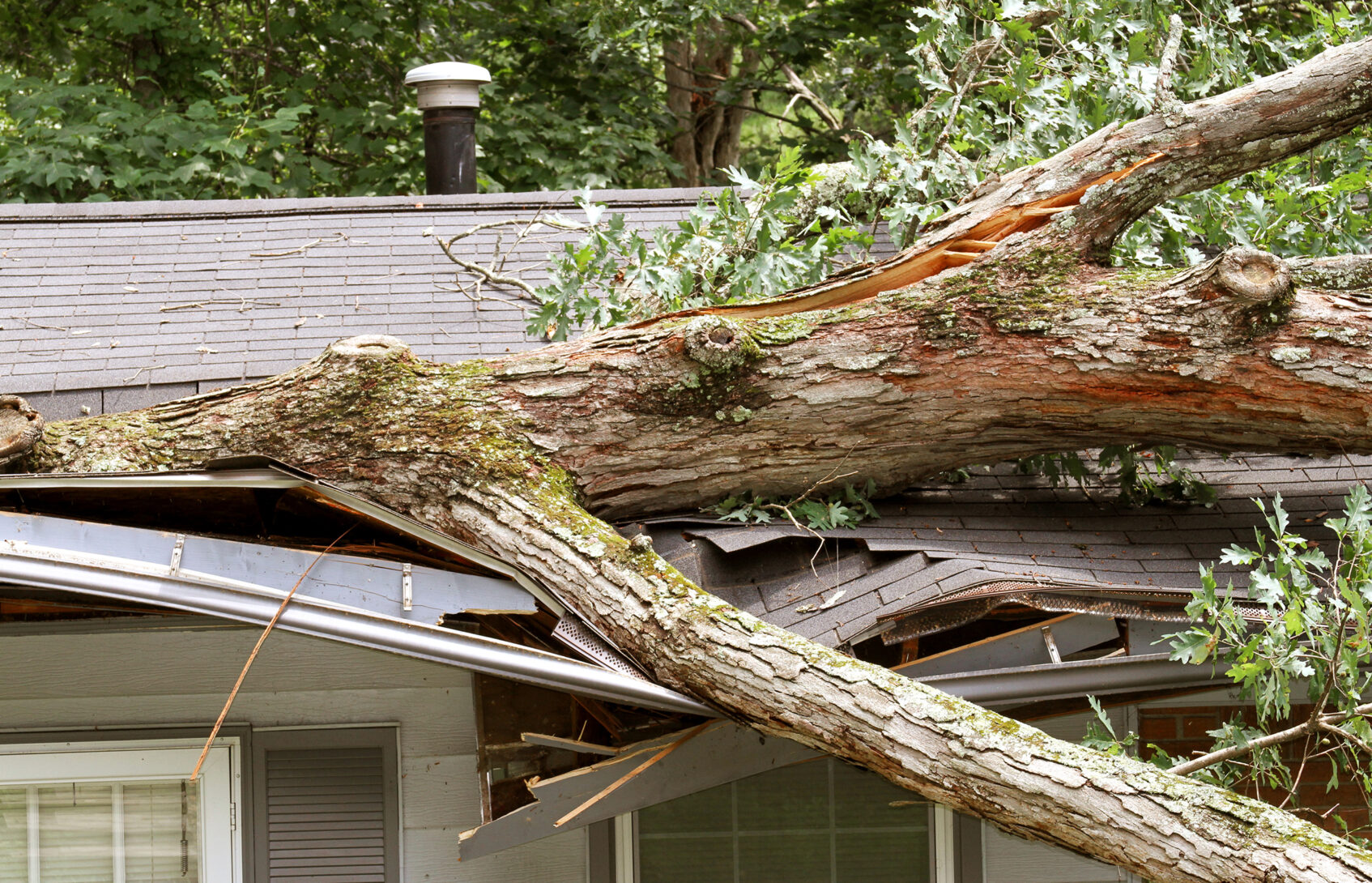Learn some ways to help prepare for those times when life doesn’t go according to plan.
Investment and Insurance Products are:
|
Transcript:
Hey, humans. I’m Michael Liersch. This is the About Money podcast presented by Wells Fargo. I’m a behavioral scientist with a PhD in cognitive psychology who loves openly talking about money to help humans better understand their money behaviors.
In Season 4, we’re going to get real by sharing money situations and scenarios that happen all the time to millions of us. Real stories. Relatable and usable. We’ll also be sharing valuable life hacks you can use to stay on track, or get back on track, with your finances. So let’s get into it.
In this episode, we’re going to ask ourselves, how can I build a financial safety net for the unexpected?
So we’ve all experienced unexpected things in our lives. It might be a job loss or a layoff. It might be a market downturn and we thought we were going to be able to have money to spend and we don’t anymore. We might have had a death in the family, you know, a partner or a spouse, you know, a child, a parent. We might have had simply something break in our household, a car, you know, a roof leak.
So how do you build that safety net? That’s our focus for today. And when you think about the safety net, I want you to think about three different categories of what makes people feel safe when it comes to the unexpected.
The first one, which is most important, is the literal safety net — the actual dollars that you should need should something happen. And so there are a lot of different ways of thinking of this. But typically what I would do and this gets into — I’m just going to jump right into our hacks — typically what I would do here is say, how much do I spend per month or how much do I spend per year? However you want to break it up.
And typically it’s good to have access to money, to cash, to a line of credit, whatever you want to call it, but you need access to the money for around think of it as a year of spending.
There’s a second item that I want to highlight with respect to a life hack, which is this idea of the psychological aspects of preparing for the unexpected. And so when you think about having access to that money, there are also things like insurance. Insuring yourself if you’re working, so that’s term life insurance, for example, is a way to insure yourself to create some replacement income for your family. And there’s a lot of different elements to that. So you’d need to look into it.
You know, there are other types of insurance products, you know, insuring your home, insuring the things in your home. They’re just so many different levels of insurance. That creates a level of psychological safety and frankly, literal safety for many people, for many families. And so really think about that category, too.
The third life hack that I want to mention here, which is also very critical, is to think about a financial safety net in terms of who’s the community of human beings that could surround you and help you should you not have that insurance, should you not have that access to that money. Who could help you navigate the struggles or the challenges that you might have?
Because it’s not necessarily all about money. It’s around the people, too. What is your access to human beings? And there’s some evidence that some people don’t really have another human being that they can collaborate with around these issues, especially money issues around the unexpected.
And so if you have nobody, I really would encourage you to think about who do you trust, who could you go ask to be this person that could help you navigate those items, which I will say also has other implications, meaning think from a health directive standpoint or for someone who had to manage, you know, the elements around a will or a trust. Who would be the people, if you weren’t around or you weren’t able to, who would help you make decisions, if you were living or not living, that would be in your and your family’s best interest? So if you have nobody, that’s really an important idea to highlight.
And if you have those people, who are they? What are their abilities? How old are they? Because if they’re very old or they’re very young, you know, would they be prepared to actually help you out should something unexpected happen? You know, make sure that you’re very deliberate and intentional and have conversations with those people so that you make sure they understand your intentions and that you understand whether they feel like they’re empowered or in a position to help you out should something happen, financially speaking.
So those life hacks, extremely critical. If you want to know where do I start to get this all done, I really would start with this idea of making sure you have money or access to money when you need it.
So what I’m going to talk about is a story of a client who actually didn’t prepare for the unexpected and then learned from that. And then the next time something happened, they made it through.
So this particular client I’m thinking about, them, their family, they were running a business. They were all very happy, living a very financially successful life, a very positive life together. Unfortunately, what they had done was they comingled their personal finances with their business finances, and then they went through a financial hardship with respect to the business and ended up losing the business, which ultimately, since they’d comingled their personal finances, made them lose all their money, their home, everything.
And I remember them telling me this story. What they learned from that was that they really needed each other. They needed one another. And thankfully they all supported one another through that dynamic. They all just looked forward and said, how do we get back to the place that we want to be, financially speaking?
And so their first lesson was really trying to carve out, in this case, you know, on the order of like tens of dollars and putting it into a bank account over multiple years until they all got back to a place where they felt financially secure to manage through those day-to-day moments.
The second thing they realized they did is they had no contingency plan, no insurance, nothing that would help them navigate through certain challenges, you know, whether it was in the business or in their personal life. So they quickly looked at, well, how could we insure ourselves should something unexpected happen so that when that thing happened, because really, a lot of times it’s not if, it’s when, you are able to actually be remunerated or get money financially speaking, to either replace that thing, whether something happens to your home, whether something happens to your car, whatever that is, so that you can make your way through that event because oftentimes there’s a psychological aspect to that event that you struggle through, but they didn’t want to have to struggle through it financially speaking.
And then it actually gave them the confidence, once they did that, because they went back to really working at very, you know, deliberate jobs that they weren’t necessarily enjoying, but they needed to rebuild their financial life to then start another business.
And that gave them the financial courage, the confidence to go do that, take that risk. And when I met them, they were on the other side of it and now they knew they needed to be really intentional about the sustainability of their money, their plans, growing their business, growing their own financial resources in a deliberate way rather than trying to get it all at once and not being prepared for things that might come their way.
That’s it for this episode. If you really like the episode, please share it with your family and friends. The About Money podcast is produced by Wells Fargo.
Announcer: This information is provided for educational and illustrative purposes only.
Investment and Insurance Products are:
|
Trust Services are available through Wells Fargo Bank, N.A. and Wells Fargo Delaware Trust Company, N.A.
Wells Fargo & Company and its affiliates do not provide legal or tax advice. Any estate plan should be reviewed by an attorney who specializes in estate planning and is licensed to practice law in your state.
Insurance products are offered through nonbank insurance agency affiliates of Wells Fargo & Company and are underwritten by unaffiliated insurance companies.
Wells Fargo Bank, N.A. is a bank affiliate of Wells Fargo & Company. Bank products and services are available through Wells Fargo Bank, N.A.
Brokerage products and services are offered through Wells Fargo Advisors, a trade name used by Wells Fargo Clearing Services, LLC, and Wells Fargo Advisors Financial Network, LLC, Members SIPC, separate registered broker-dealers and nonbank affiliates of Wells Fargo & Company.
Wells Fargo Bank, N.A. (“the Bank”) offers various banking, advisory, fiduciary and custody products and services, including discretionary portfolio management. Wells Fargo affiliates, including Financial Advisors of Wells Fargo Advisors, may be paid an ongoing or one-time referral fee in relation to clients referred to the Bank. In these instances, the Bank is responsible for the day-to-day management of any referred accounts.
© 2023 Wells Fargo Bank, N.A. All rights reserved. NMLSR ID 399801 Equal Housing Lender.




